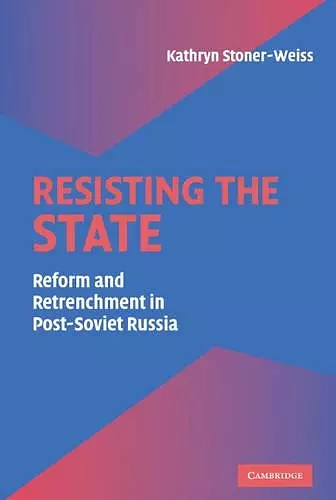Resisting the State
Reform and Retrenchment in Post-Soviet Russia
Format:Hardback
Publisher:Cambridge University Press
Published:19th Jun '06
Currently unavailable, and unfortunately no date known when it will be back

This book looks at the issue of governance capability by using post-communist Russia as an example.
With wars in Iraq and Afghanistan, we are frequently told that the path to better living for everyone is democracy. This book looks at the issue of governance capability in transitional states (state capacity) by using post-communist Russia as an example.Why do new, democratizing states often find it so difficult to actually govern? Why do they so often fail to provide their beleaguered populations with better access to public goods and services? Using original and unusual data, this book uses post-communist Russia as a case in examining what the author calls this broader 'weak state syndrome' in many developing countries. Through interviews with over 800 Russian bureaucrats in 72 of Russia's 89 provinces, and a highly original database on patterns of regional government non-compliance to federal law and policy, the book demonstrates that resistance to Russian central authority not so much ethnically based (as others have argued) as much as generated by the will of powerful and wealthy regional political and economic actors seeking to protect assets they had acquired through Russia's troubled transition out of communism.
'This is a serious research monograph, which anyone wanting to examine the realities of power in post-Soviet Russia, and the reasons for these, should read.' Europe-Asia Studies
'The book is a must-read for scholars of nationalism wishing to broaden their understanding of Russian federalism.' Ab Imperio
ISBN: 9780521824637
Dimensions: 229mm x 152mm x 14mm
Weight: 440g
182 pages